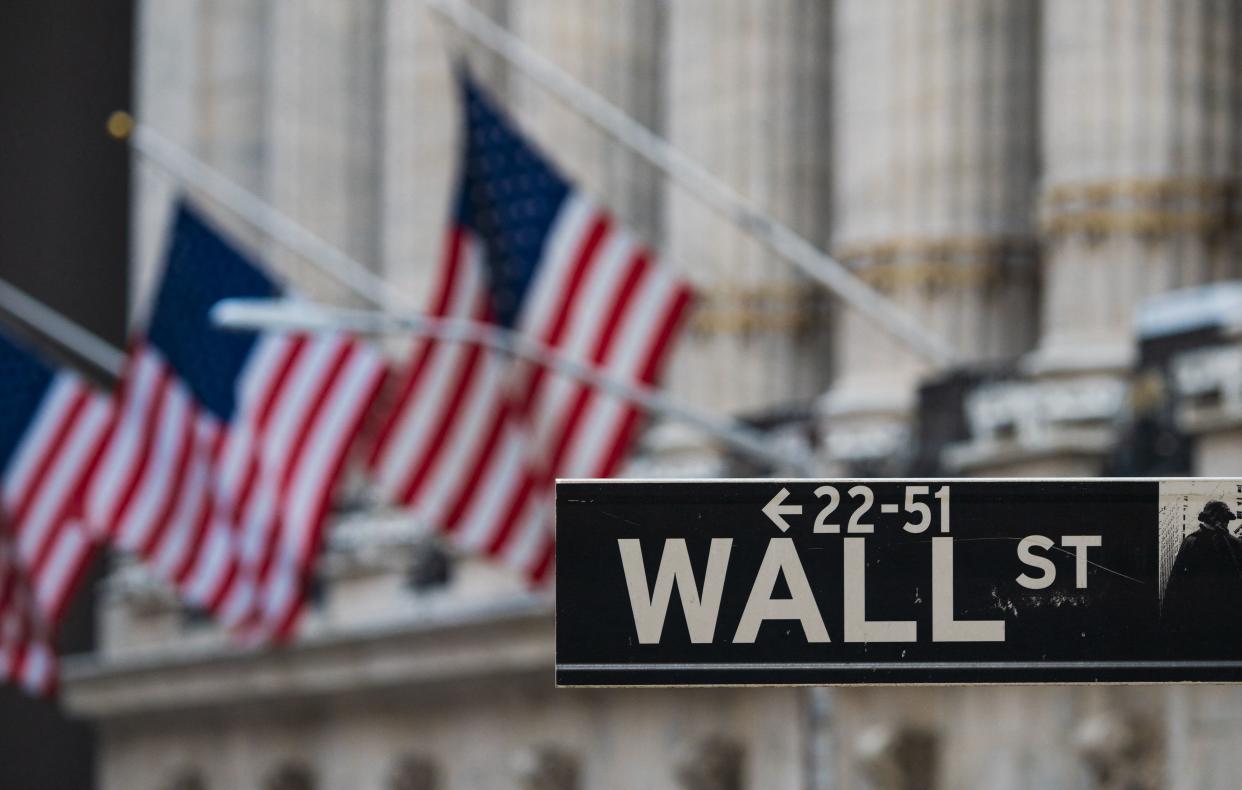What sky-high bond yields mean for investors: An explainer
This week the yield on 10-year Treasuries hit levels not seen in more than 15 years, climbing above 4.6%. Why does it matter?
Simply put, the yields carry massive importance in the US economy, closely watched as a benchmark for borrowing costs for households and corporations. They also help determine the value of other assets, influencing where investors put their money.
The recent surge has weighed on stocks. The benchmark S&P 500 (^GSPC), for instance, has sagged more than 4% over the past month. And bond yields serve as a stand-in for the outlook on higher interest rates.
Here's what rising bond yields mean for investors and the stock market:
Why are bond yields rising?
The early summer flashed signs that the Fed's tightening campaign was coming to an end. But that exuberance has given way to caution on Wall Street. Central bankers confirmed last week they predict rates will remain elevated for longer than previously thought. And as interest rates rise, generally so do bond yields, which move inversely to bond prices.
Ten-year yields have held over 4% since early August. But after the Fed signaled that another rate hike will arrive before the end of the year, yields have risen even higher. As the Fed struggles to pull inflation down to its 2% target, which won't happen until 2026 according to its latest projections, investors are banking on higher rates sticking around for years.
"Yields are high right now because investors are pricing in a higher interest rate environment, as the Fed has indicated that it still may raise interest rates to combat inflation," said Jeff Corey, senior vice president of Claro Advisors, a wealth management firm based in Boston.
How does this impact the stock market?
Stocks tend to look like worse investments as bond yields rise. That's because 10-year bonds are considered safer investments. That safety typically comes with the promise of a much smaller reward, in the form of a modest yield that is paid through a bond's maturity date. But as yields get bigger, bonds can become more attractive to investors. Bonds continue to offer less risk compared to stocks and now offer a guaranteed yield that approaches 5%.
"Rising bond yields means that stocks have more competition," said Corey. "If an investor can earn almost 5% yield in a safe government bond, it may not make as much sense to invest in stocks, which are much more volatile and risky than bonds."
As investors decide where to put their money, bonds with higher yields provide an alternative to stocks, especially during times of volatility. The safety and stability of bonds can punish the stock market as investors move their money from stocks into bonds. But for many investors with an appetite for lower risk, the boosted yields can be a boon.
Why are tech stocks especially sensitive?
Rising 10-year bond yields tend to be an obstacle for tech stocks. Many investors are drawn to high-flying technology companies because they offer the possibility of enormous upside. Their future returns can be massive, even as their current profits are modest, or nonexistent, as executives chase growth. But as bond yields rise, the risk-free returns start to look more attractive than the distant potential profits of tech stocks.
Higher bond yields, which coincide with higher borrowing costs, also weigh on the businesses themselves as they rely on loans to operate.

What do higher yields mean moving forward?
"Rising bond yields can trigger instability and valuation concerns in the stock market, as bonds compete with stocks for investor money," said Russell Hackmann, president of Hackmann Wealth Partners. "Higher bond yields may also imply an economy that is strong, with inflation relatively high, and a Fed needing to continue to combat inflation."
Another takeaway from rising bond yields points to perceptions of inflation. "We are witnessing a renewed concern that inflation is sticky and will remain with us for the foreseeable future," said Stash Graham, managing director at Graham Capital Wealth Management. "Higher-than-expected inflation will cause would-be buyers of US Treasuries to demand higher interest rates to compensate for this inflation risk," he said.
Higher yields and the uncertainties of the stock market also partly reflect different perceptions of the Fed's tightening campaign and the central bank's ability to engineer a soft landing. What's more, outstanding questions remain over whether the COVID era will usher in a period where higher rates are the norm in order to keep inflation and unemployment stable over time.
From households to businesses, the yields on 10-year Treasuries have far-ranging impacts. "The 10-year Treasury yield is very important because it determines the interest rate on mortgages," said Corey. "It is also the benchmark interest rate that many businesses and companies use in their calculations for determining whether or not to invest and expand their business."
Hamza Shaban is a reporter for Yahoo Finance covering markets and the economy. Follow Hamza on Twitter @hshaban.
Click here for the latest economic news and indicators to help inform your investing decisions.
Read the latest financial and business news from Yahoo Finance
